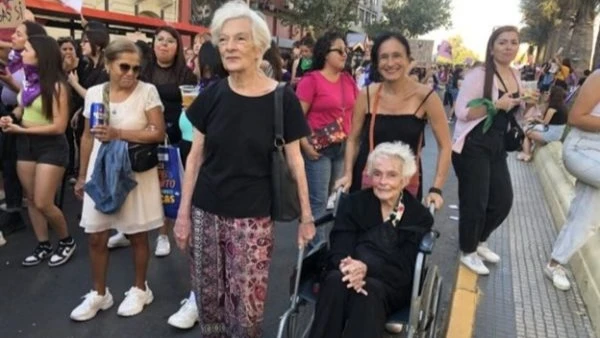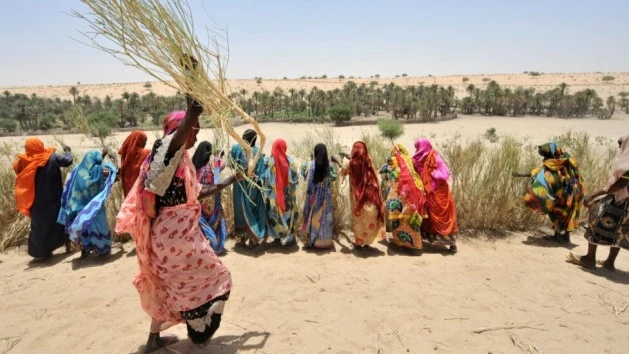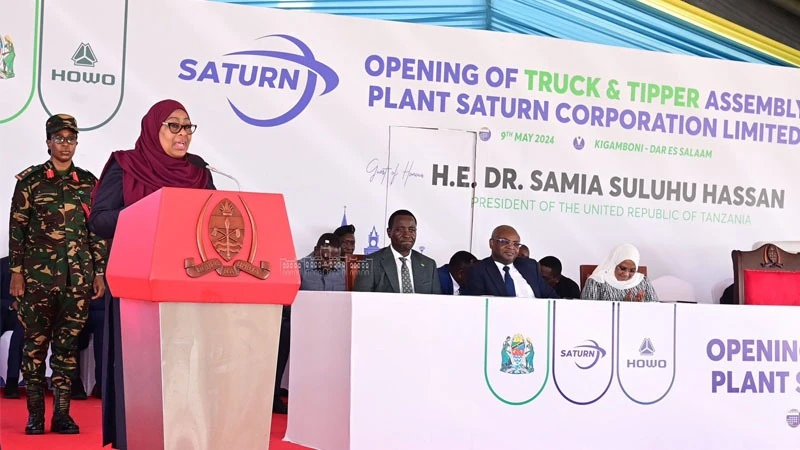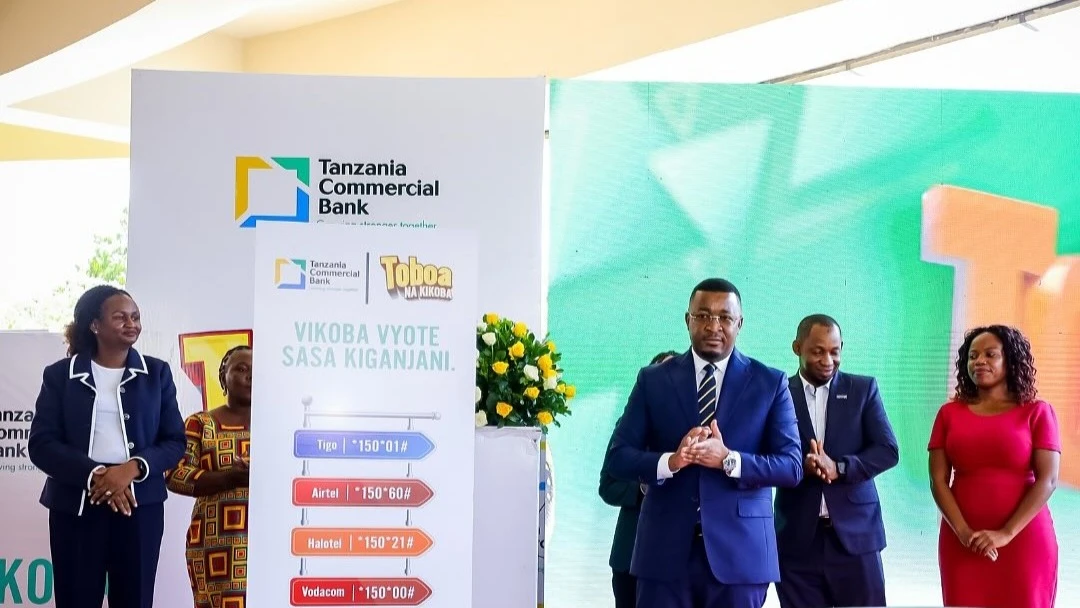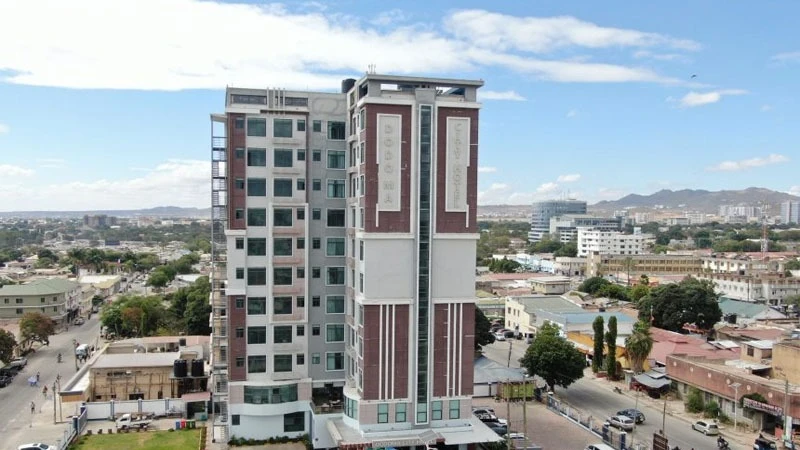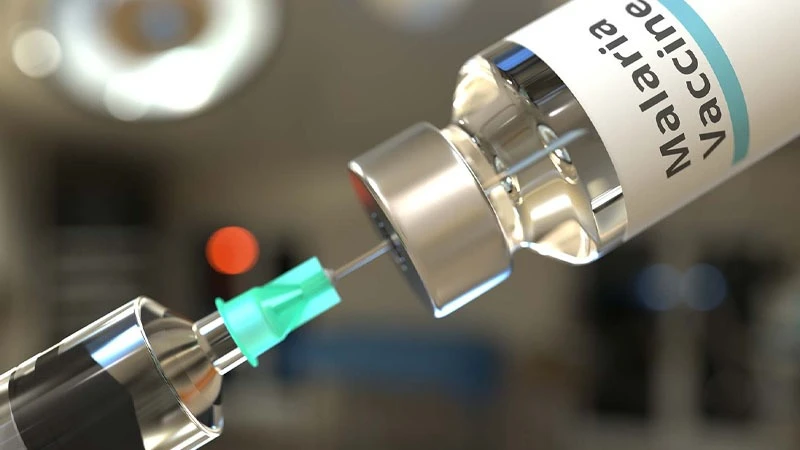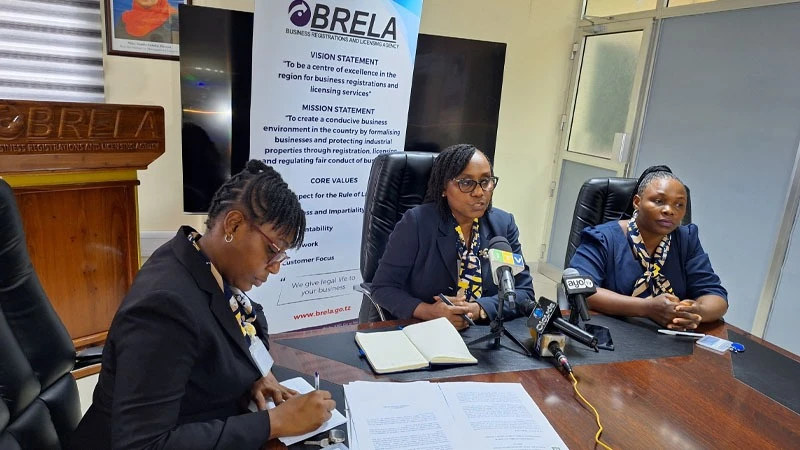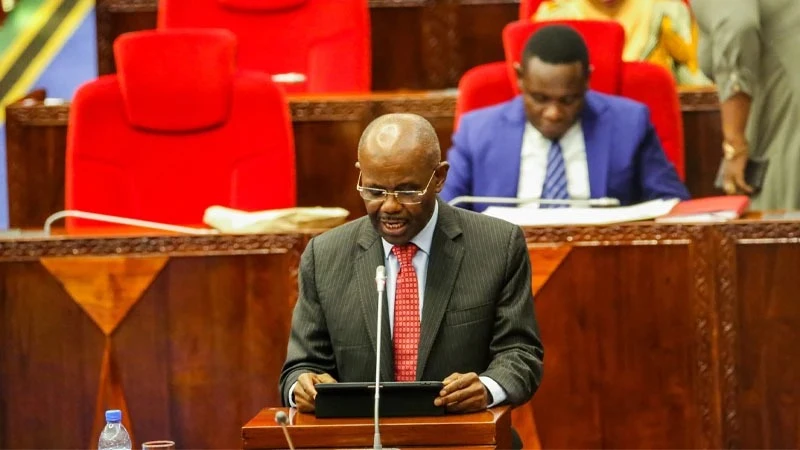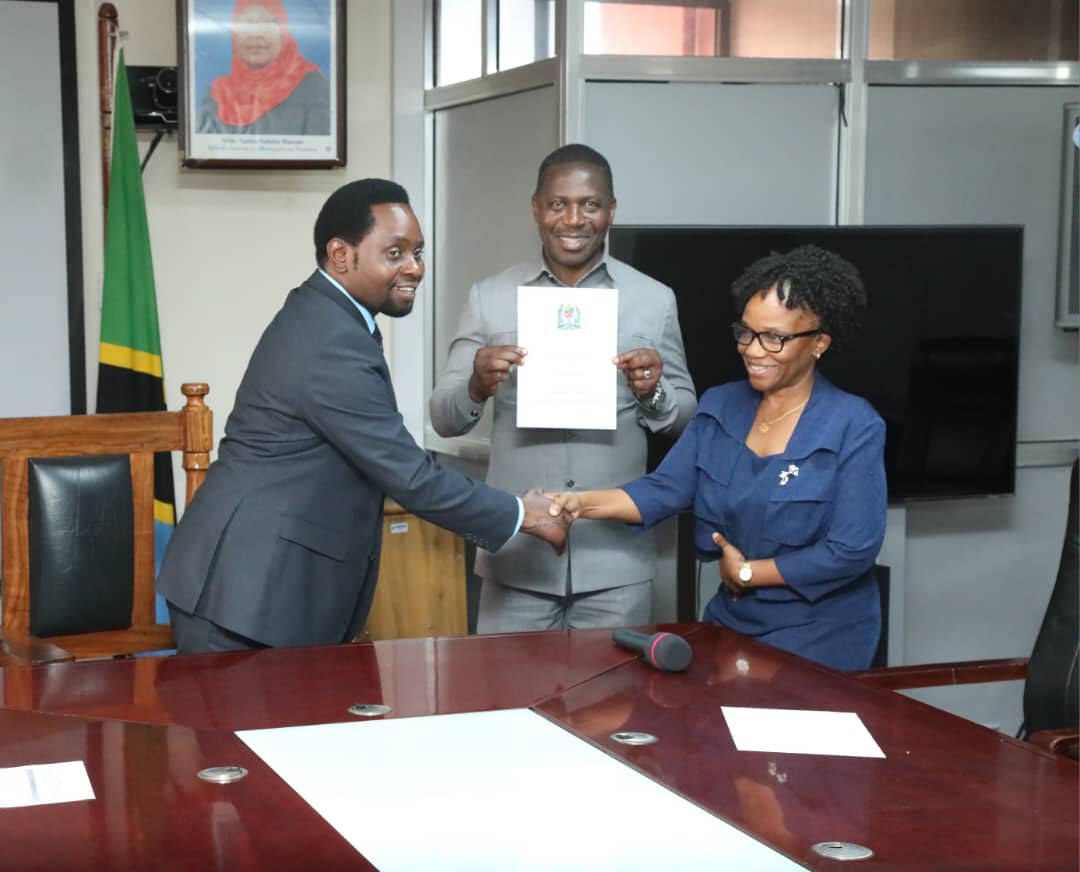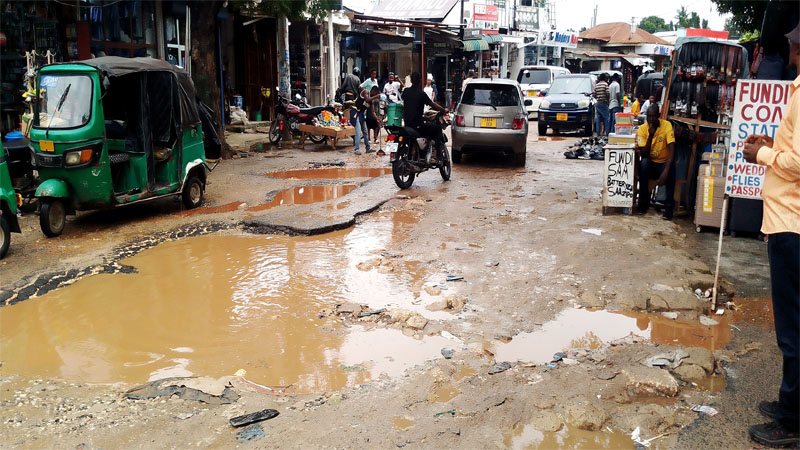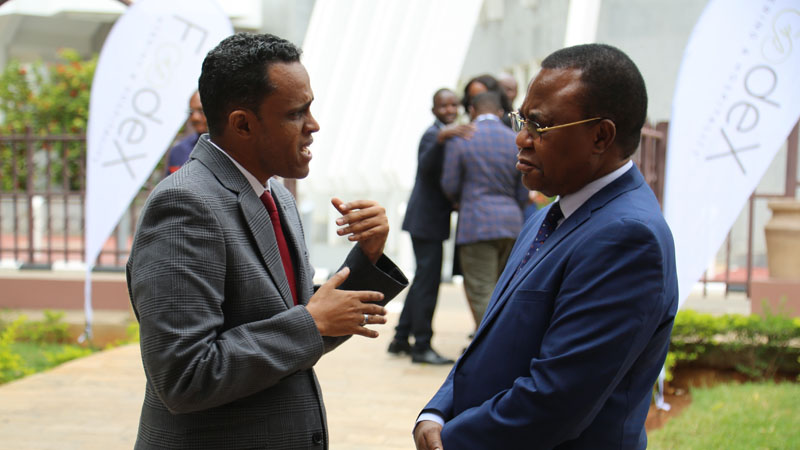Project empowers women adjacent to national parks
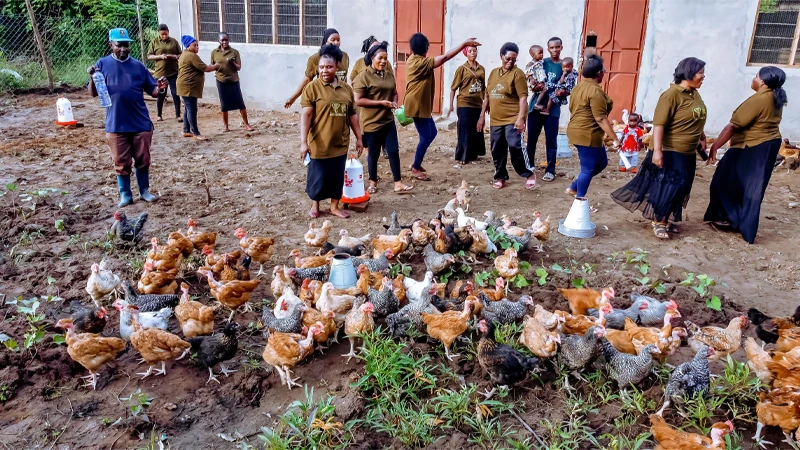
THE government through the Ministry of Natural Resources and Tourism has since 2018 being implementing the Resilient Natural Resource for Tourism and Growth (REGROW) project which is financed by the World Bank.
Apart from its core objective of improving tourism in the southern circuit, the $150 million (350bn/) project also empowers communities residing near the targeted national parks—Ruaha, Mikumi, Udzungwa and Nyerere.
The empowerment programs have resulted in improved livelihood of the villagers especially women and girls. A good number of women had their welfare more improved under the various economic activities and group projects that are supported by REGROW.
Under the project, women are being empowered through various programmes as well as entitled to leadership at different levels of management in the project. A number of them have also been provided with training and scholarships. The project has facilitated a range of trainings to over 9,106 people, of whom, 5,386 are women (59.1percent)).
There are 17 female project staff out the available 64 across implementing institutions, a 36 percent representation. At managerial level, women led positions includes, the Deputy Project Coordinator (DPC), Environmental and Social Specialist (ESS), Financial Management Specialist (FMS), and the Procurement Management Specialist.
At district level, REGROW has appointed 11 district focal persons, of whom four (36 percent) are female. In addition, at the village level, REGROW is managed by 61 community facilitators (CFs), of whom 22 are female (36 percent).
Through Community Conservation Bank (COCOBA), villagers are provided with capital and seed money to further improve their designed projects. Data from the ministry indicates that until February this year, the capital of COCOBA groups has been increasing at a 4 percent rate per month from 61,382,550/- in January 2023 to 1,319,925,033/- in January 2024. The number of group members qualifying for loans has also increased to 3,496 from the previous 483.
Method Misimbe is the Acting Mikumi Ward Executive Officer, he told The Guardian that the project has largely contributed to improved livelihood and welfare of women in the area, with most of them engaging in businesses such as poultry farming, saloon, restaurants, pharmacies, shops sunflower and rice cultivation.
“There are those who had nothing at all, but they are now economically stable. We are thankful to the ministry for coming up with the COCOBA program, thus enabling women to easily access loans for improvement of their businesses,” remarked Misimbe, adding the government is also benefiting from the project through the various levies and taxes paid by women traders.
Secretary of the Pamoja COCOBA group in Mikumi village, Mikumi Ward, Morogoro Region, Mgeni Mfalingundi said the 25 members group is implementing a poultry farming project whereas they are planning to have over 300 chickens which will be sold after every two months.
“With the support from REGROW, individual members can now get a loan of up to 3m/-. Previously, a member could get a loan of between 100,000/- and 400,000/-,” explained Mfalingundi who owns a pharmacy.
Merycardo Valence, a member of the Amani Urithi Wetu COCOBA group has seen her business capital growing to 2m/- in two years. She engages herself in a whole sale maize business sourcing the grains from rural villages across Morogoro Region.
“I can get a profit of up to 50,000/- per 100kg sack. I can pay school fees for my son and repay the loan accordingly,” she told The Guardian.
Nadya Mohamed said: “REGROW has completely changed my life. I received a 6m/- loan and bought two motorbikes that are each generating a profit of 70,000/- per week. I have repaired my house and bought new furniture.”
Catherine Haule, a member of Tupendane Chekereni COCOBA group in Mikumi village said the project is a game changer as her business has grown.
Haule who owns a pub and a pork butcher has seen her profit increasing to more than 100,000/- per day.
She said the group has already secured a 12 acres farm for sunflower cultivation, adding that plans are to process sunflower cooking oil.
“We are now finalizing construction of the building where machines will be installed. Our plans are also to buy sunflower from villages to ensure we have enough raw materials,” she said, noting the group was provided with a 28m/- capital and a seed money of over 10m/- .
Khadija Said, a resident of Mkata village in Mvomero District, Morogoro Region and member of Mkata Wildlife Protection group said through the loans she has been able to expand her business with her capital increasing from 1m/- to 6m/-.
“We are thankful to President Samia Suluhu because most women own businesses. I am getting a 500,000/- profit per month. I have been able to complete construction of my house,” she added.
Ajuta Mwenda, who owns a shop at Mkata village which is adjacent to Mikumi National Park said that with the support from REGROW, her business capital has now reached to 17m/-.
“I have constructed three houses; I am enjoying the benefits of conservation,” said Mwenda.
REGROW Coordinator from the Ministry of Natural Resources and Tourism, Aenea Saanya told The Guardian that a total of 75 women equivalent to 10 percent have been employed at the various projects implemented by the REGROW project including construction of airstrips at Ruaha, Udzungwa, Mikumi and Nyerere national parks.
The women are from the villages of Mwasemi, Ikwiriri, Madundasi, Luhanga, Igurusi, Tungamalenga, Idodi, Iringa Mjini, Mapogoro, Kitisi, Msembe, Mang'ula A, Mang'ula B, Sanje, Mgudeni, Mkula, Mwaya, Ifakara, Udekwa, Mji Mpya, Kikwalaza, Tambukareli, Kidoma and Magoma
He said during execution of the primary canal and 10.6 kilometre secondary canal at a popular rice growers’ scheme in Mbarali District, a total of 127 women (31 percent) were employed.
They are from Mkunywa, Ikoga Mpya, Nyakadete, Chalisuku, Mahango, Iheha and Nyamakuyu in Madibira wards. Others were from Miyombweni, Mapogoro, Mlungu, Nyakazombe and Magigiwe villages in Miyombweni ward.
“Ten women (16 percent) have been employed at a water project in Madibira ward. They are from Uturo, Gonakuvagogolo, Matebete, Chosi na Herman, Isele, Njombe, Mbuyuni, Makangalawe, Igumbilo, Isitu and Madibira villages.
“We will continue to engage women as drivers of community development especially the marginalized and vulnerable groups in communities near protected areas,” remarked Saanya, noting the success of the project depends on the contributions of women across all levels.
Top Headlines
© 2024 IPPMEDIA.COM. ALL RIGHTS RESERVED





